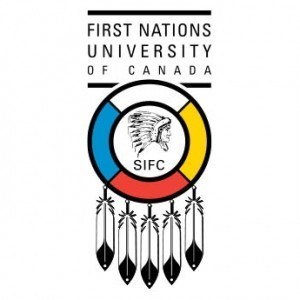The Indigenous Social Work program at the First Nations University of Canada is a culturally grounded undergraduate degree designed to prepare students for impactful careers rooted in Indigenous perspectives, values, and methodologies. This program emphasizes the importance of integrating Indigenous knowledge systems, traditions, and worldviews into social work practice to better serve Indigenous communities and address their unique social, economic, and political challenges. Throughout the program, students engage in comprehensive coursework that combines theory, practical skills, and experiential learning, all within a framework that respects and upholds Indigenous teachings and philosophies.
The curriculum covers a broad range of topics including Indigenous history, contemporary issues facing Indigenous peoples, community development, mental health, trauma-informed care, and social policy. Students also participate in community-based projects and practicum placements, which provide hands-on experience working directly with Indigenous organizations and communities. These opportunities allow students to apply their learning in real-world settings, fostering a deep understanding of cultural competencies and ethical responsibilities. The program aims to produce social workers who are not only skilled practitioners but also culturally sensitive advocates dedicated to social justice, reconciliation, and the empowerment of Indigenous peoples.
The Indigenous Social Work program is designed for students who are passionate about making a difference in Indigenous communities and committed to advancing Indigenous rights and sovereignty through social work. It offers a supportive learning environment that values Indigenous languages, traditions, and ways of knowing, ensuring that graduates are well-equipped to serve their communities with respect, integrity, and cultural humility. Graduates of this program are prepared to work in diverse settings including healthcare, education, justice, policy development, and community organization, making significant contributions toward healthier, more equitable Indigenous communities.
The Indigenous Social Work program at the First Nations University of Canada is designed to equip students with the knowledge, skills, and cultural understanding necessary to serve Indigenous communities effectively. This comprehensive program combines academic coursework with practical experiences, emphasizing Indigenous perspectives, traditions, and values in social work practice. Students will explore topics such as Indigenous history, cultural sovereignty, community development, and social justice, all framed within the context of Indigenous worldviews. The curriculum emphasizes the importance of decolonizing social work practices and fostering strengths-based approaches that empower Indigenous populations. Throughout their studies, students will engage with elders, community leaders, and Indigenous organizations to deepen their cultural competence and strengthen their commitment to Indigenous-led solutions. The program prepares graduates for a variety of roles within Indigenous organizations, mental health services, child welfare agencies, and government bodies that serve Indigenous peoples. Field placements are integrated into the program to provide real-world experience and strengthen community connections. Graduates will be equipped to advocate for Indigenous rights and to implement culturally appropriate interventions that respect Indigenous identities and traditions. Emphasizing both theoretical foundations and practical application, the Indigenous Social Work program aims to produce professionals who are culturally responsive, ethically aware, and dedicated to social justice. The program is suited for Indigenous students seeking to serve their communities, as well as for non-Indigenous students committed to learning about Indigenous ways of knowing and contributing to reconciliation efforts.
Program requirements for the Indigenous Social Work degree at the First Nations University of Canada include a combination of university core courses, Indigenous-focused coursework, field placements, and community engagement components. Applicants must possess a high school diploma or equivalent, with a preferred background in social sciences or Indigenous studies. Admission typically requires submission of transcripts, a statement of intent, and references demonstrating interest and commitment to Indigenous communities and social work. The program emphasizes the integration of Indigenous traditions, values, and perspectives within social work practice, and therefore encourages students to engage actively in Indigenous cultural activities and community collaborations throughout their studies.
Curriculum requirements include completing foundational courses in social work theory, ethics, and practice methods, along with specialized courses on Indigenous healing, sovereignty, and cultural safety. Students are also expected to participate in field placements within Indigenous organizations to gain practical experience working in community settings. These placements are designed to develop competence in respectful and culturally appropriate social work interventions. Additionally, students must complete a capstone project that addresses real-world issues affecting Indigenous populations, demonstrating their capacity to apply theoretical knowledge in practical contexts.
The program promotes experiential learning through community-oriented projects, seminars, and workshops led by Indigenous elders and community leaders. To graduate, students must achieve a minimum grade point average, complete all coursework, participate in required community engagement activities, and successfully defend their final project. The program may also have prerequisites in introductory social work courses or Indigenous studies, depending on the student’s prior academic background. Overall, the Indigenous Social Work program aims to prepare graduates for effective, culturally competent practice in Indigenous communities and beyond, aligning academic learning with community needs and Indigenous worldviews.
The Indigenous Social Work program at the First Nations University of Canada offers various financing options to support students throughout their academic journey. Funding opportunities include government financial aid, scholarships, bursaries, and sponsorships specifically tailored for Indigenous students pursuing social work education. The university encourages applicants to explore federal and provincial student aid programs such as Canada Student Loans and Saskatchewan Student Loans, which can provide substantial financial assistance based on need. Additionally, First Nations University of Canada provides dedicated scholarships and bursaries for Indigenous students, recognizing their unique cultural and educational needs. These awards are often funded through partnerships with Indigenous organizations, government agencies, and private donors invested in Indigenous education. To be considered for these funding sources, students are typically required to submit financial aid applications and documentation demonstrating financial need and Indigenous identity. The university also offers work-study opportunities and part-time employment within the campus to help students offset living and educational expenses. Furthermore, some Indigenous organizations and communities may provide sponsorships or stipends to support their members enrolled in social work programs. It is recommended that students consult the university’s financial aid office and the Indigenous student services department early to understand all available options and application procedures. By leveraging these various funding sources, students in the Indigenous Social Work program can access the necessary financial resources to focus on their studies and contribute meaningfully to their communities upon graduation.
The Indigenous Social Work program at First Nations University of Canada is designed to provide students with a comprehensive understanding of social work principles through an Indigenous lens. This program emphasizes the importance of incorporating Indigenous knowledge, traditions, and worldviews into social work practice, aiming to prepare graduates who are culturally competent and capable of serving Indigenous communities effectively. The curriculum includes courses on Indigenous history, culture, and issues specific to Indigenous populations, alongside core social work topics such as counselling, community development, policy analysis, and advocacy. The program often features field placements, allowing students to gain practical experience within Indigenous settings, reinforcing theoretical learning with real-world application.
Students in this program benefit from faculty members who are experts in Indigenous social work and who emphasize respectful engagement and cultural safety. The program also promotes leadership development, critical thinking about social justice, and the importance of self-awareness in social work practice with Indigenous peoples. As part of the First Nations University of Canada, the program is rooted in Indigenous values and philosophies, fostering a learning environment that respects and promotes Indigenous wellbeing and sovereignty. Graduates of this program are equipped to work in various settings including Indigenous health and social services, education, community organizations, and government agencies, where they can contribute to social change and the betterment of Indigenous communities.
The Indigenous Social Work program is part of the university’s broader mission to support Indigenous education and promote reconciliation through education and research. It combines academic coursework with community involvement to ensure that the learning is relevant and impactful. The program is structured to be accessible to both full-time and part-time students, often offering flexible learning options to accommodate Indigenous students' needs. Overall, the program aims to develop culturally grounded social workers who can advocate for Indigenous rights, develop community-led solutions, and foster resilience within Indigenous populations.

